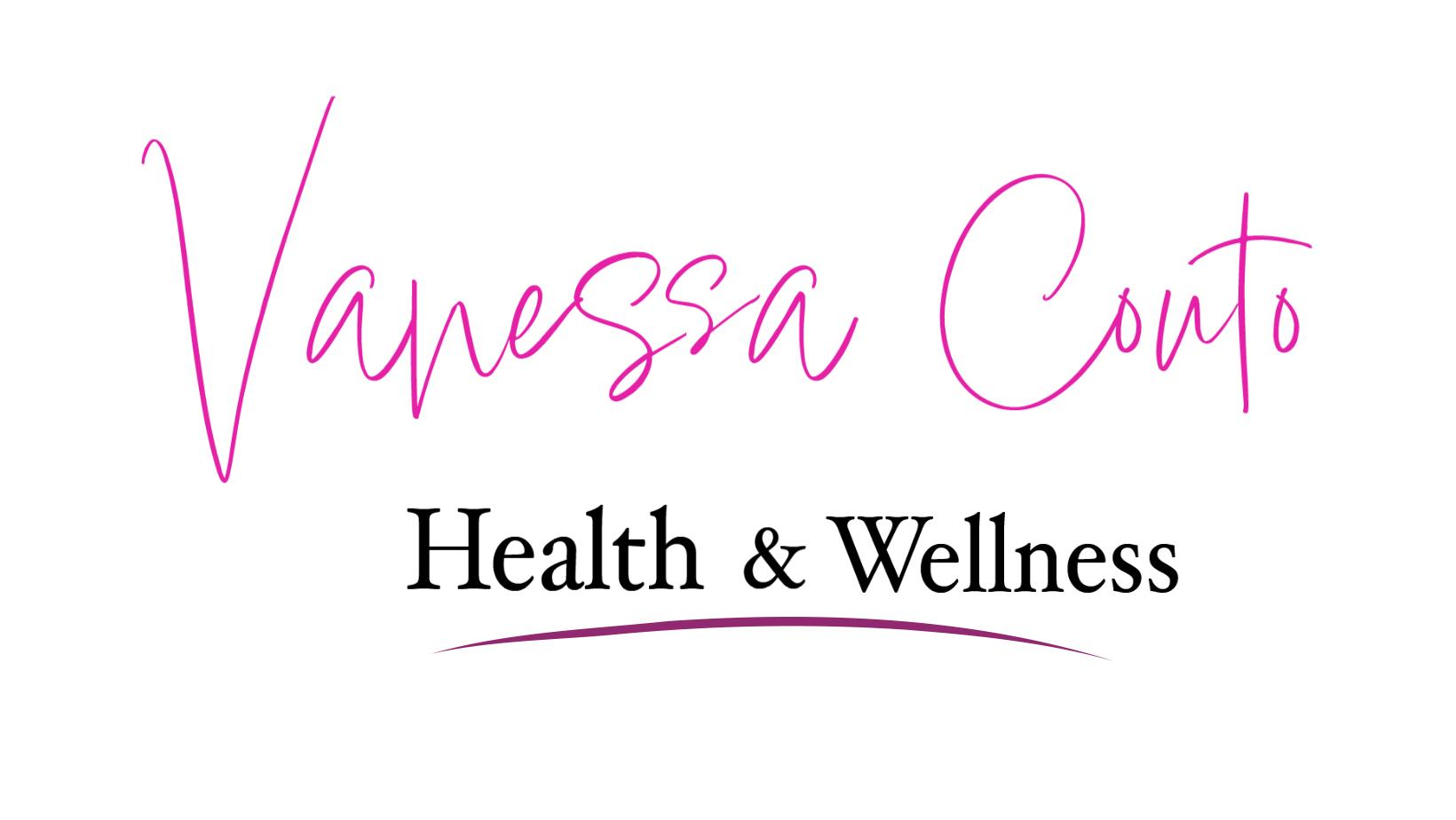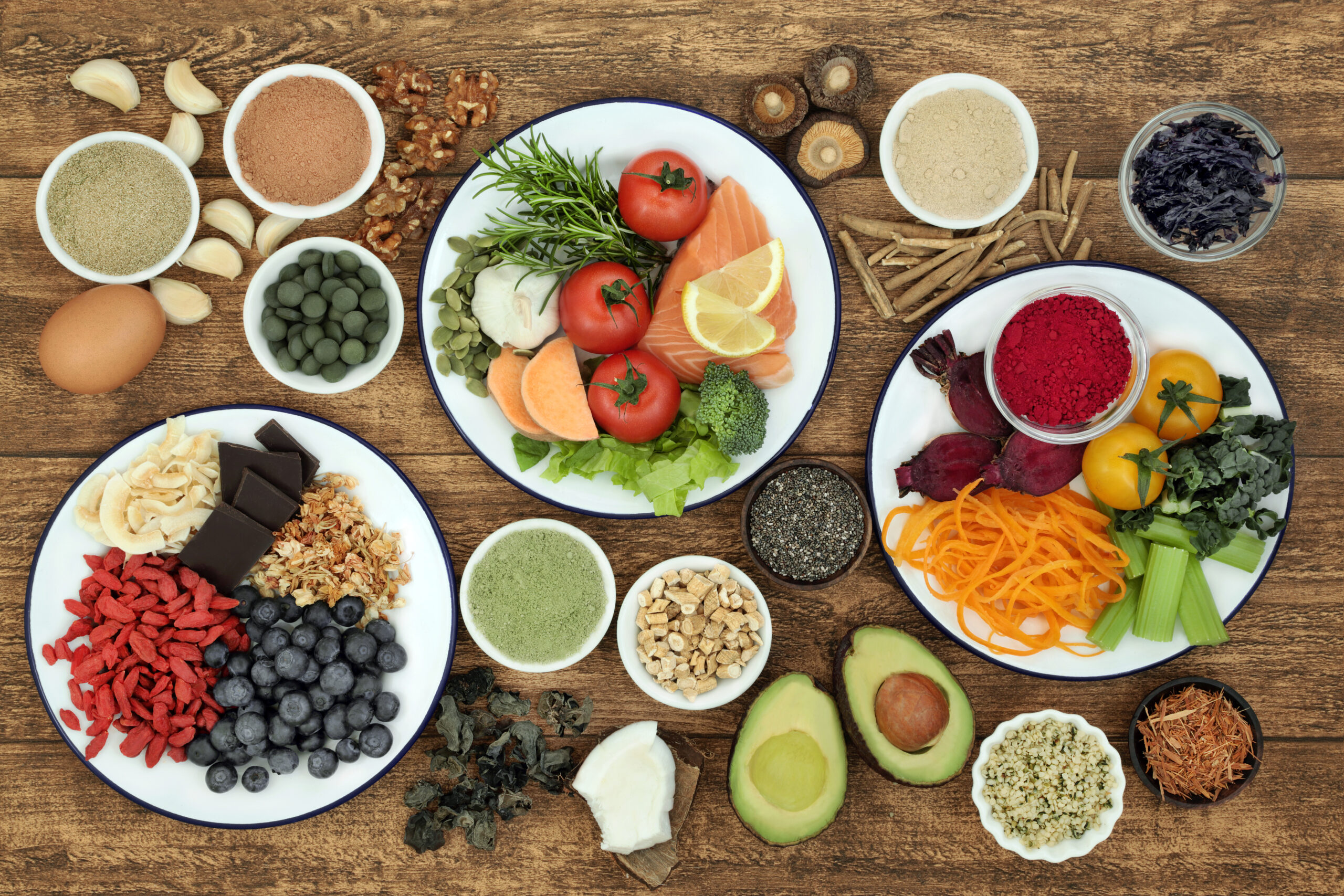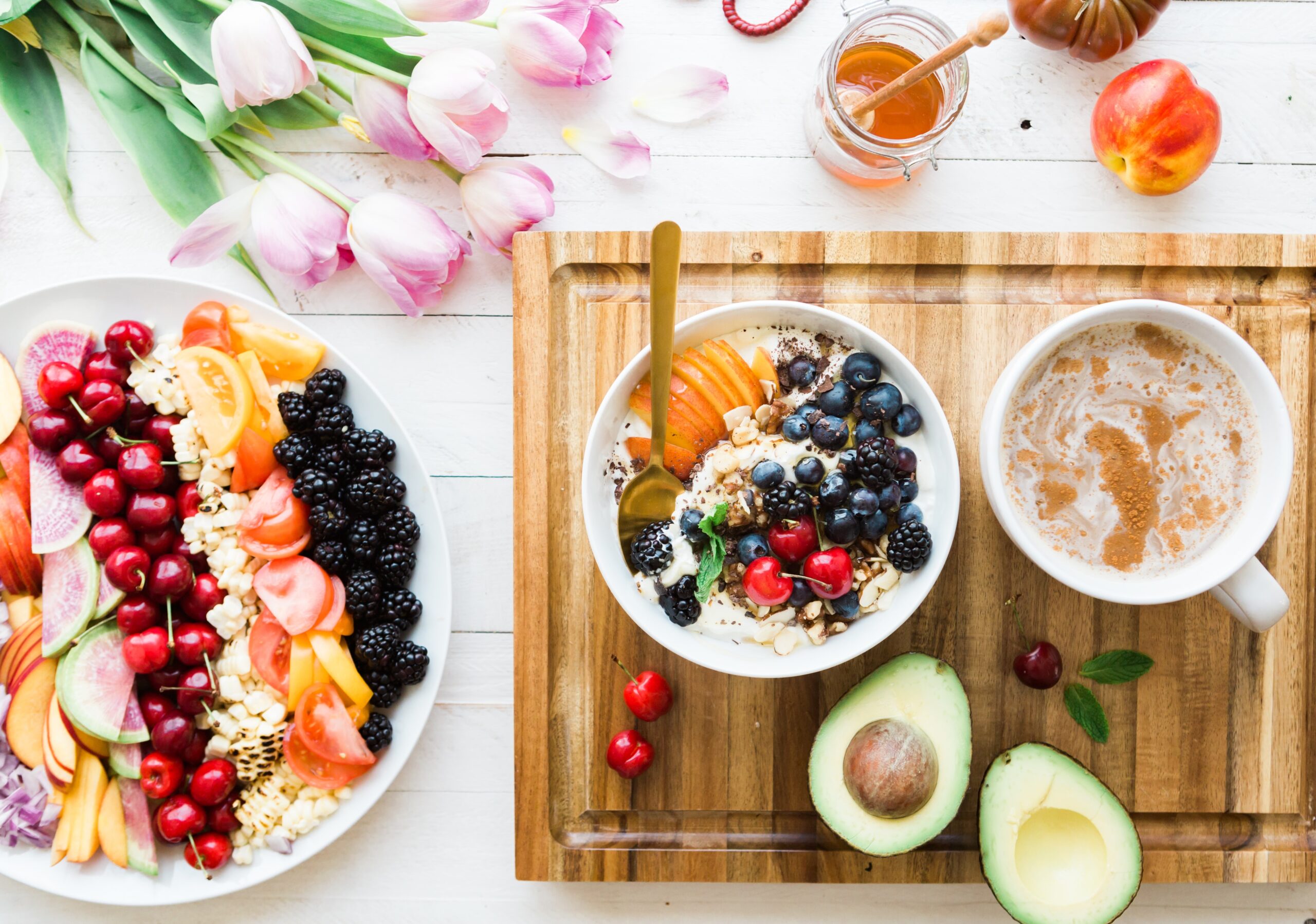Maintaining good mental and emotional health is crucial for overall well-being, and one aspect that plays a significant role in this is our diet. The foods we consume can significantly impact our mood and emotional state. Research have shown that certain foods contain nutrients that promote the production of “feel-good” chemicals in the brain, which can help alleviate stress, anxiety, and depression.
This blog post will explore ten healthy foods that can boost mood and improve mental and emotional health.
First, let’s understand how it works.
How Does Food Can Boost Your Mood
The relationship between food and mood is a fascinating and powerful one. Certain foods contain essential nutrients that play a vital role in the brain’s production and regulation of neurotransmitters. For instance, omega-3 fatty acids containing foods can reduce inflammation in the brain and support neurotransmitter function, positively impacting mood.
Additionally, many fruits and vegetables are rich in antioxidants and vitamins that protect the brain from oxidative stress and enhance cognitive function, ultimately influencing emotional well-being. The gut-brain connection is another crucial aspect; fermented foods with probiotics can improve gut health, positively impacting brain function and mood.
Moreover, certain foods, like nuts and whole grains, help stabilize blood sugar levels, preventing mood swings and supporting emotional stability. By making mindful and nutritious choices, we can harness the power of food to uplift our mood, improve mental health, and foster emotional resilience.
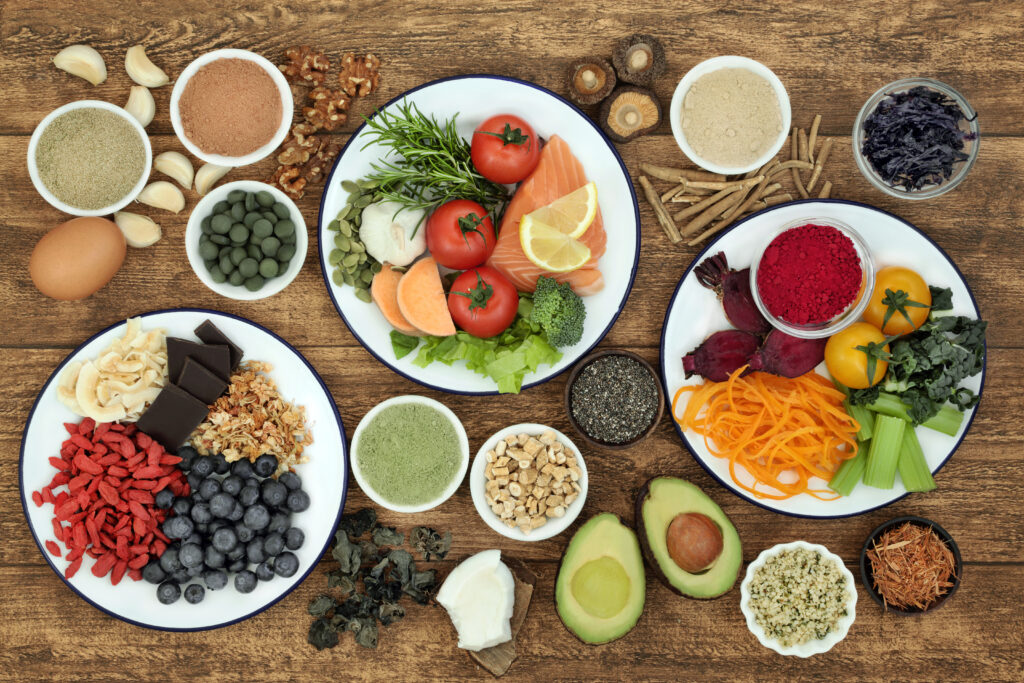
10 Mood-Boosting Foods
1. Fatty Fish (Salmon, Mackerel, and Sardines)
Fatty fish are rich in omega-3 fatty acids, particularly EPA and DHA, which are essential for brain health(1). These healthy fats are known to reduce inflammation in the brain, support neurotransmitter function, and enhance overall mood. Regular fatty fish consumption has been linked to a lower risk of depression and anxiety disorders.
2. Berries (Blueberries, Strawberries, and Blackberries)
Berries are a rich source of antioxidants, such as anthocyanidins and anthocyanins, a natural colorants food, that improve visual, neurological health and memory (2; 3; 4 ). By reducing the oxidative stress, these colorful fruits protect the brain e promote better cognitive function and overall mental and emotional well-being.
3. Nuts and Seeds (Almonds, Walnuts, Chia, and Flaxseeds)
Nuts and seeds contain nutrients, including magnesium, zinc, and healthy fats(5). Magnesium, in particular, has been linked to regulating mood-enhancing neurotransmitters like serotonin and dopamine (6). Moreover, the combination of healthy fats, fiber, and protein in nuts and seeds helps stabilize blood sugar levels, reducing mood swings(7).
4. Leafy Greens (Spinach, lettuce, Kale, and Swiss Chard)
Leafy greens are abundant in folate, a B vitamin essential for supporting brain function and reducing the risk of depression (8). Folate helps produce neurotransmitters like serotonin, dopamine, and norepinephrine, which are crucial for emotional regulation and maintaining a positive mood.
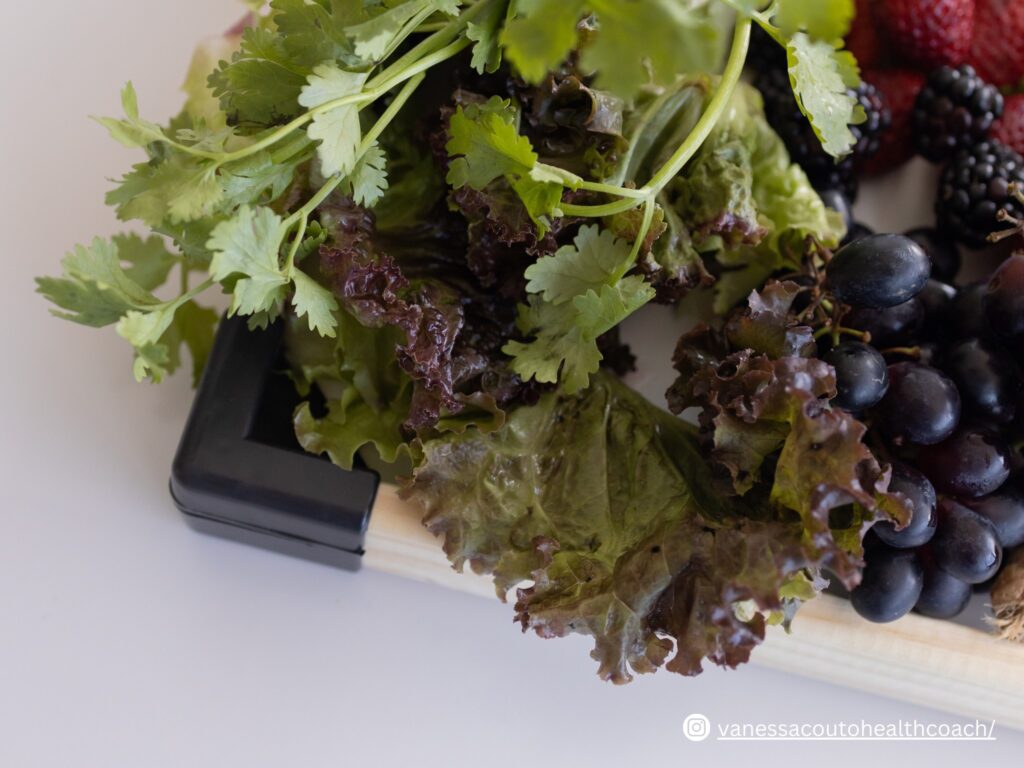
5. Fermented Foods (Yogurt, Kimchi, and Kombucha)
Gut health is closely linked to mental health. Fermented foods can contribute to a healthy gut microbiome (9). Probiotics found in these foods promote the growth of beneficial gut bacteria, which, in turn, can positively influence brain function and mood by producing neurotransmitters like serotonin (10).
6. Whole Grains (Brown Rice, Quinoa, and Oats)
Whole grains are good for your immune system (11) because they are rich in complex carbohydrates that gradually release glucose into the bloodstream, providing a steady energy supply to the brain. This helps prevent fluctuations in mood and promotes a stable emotional state. Whole grains also contain B vitamins, which support proper nerve function and help combat stress.
7. Turmeric
Turmeric contains a compound called curcumin, which has powerful anti-inflammatory and antioxidant properties (11) . Curcumin has been found to boost brain-derived neurotrophic factor (BDNF) levels, a protein that supports brain function (12) and may improve mood and cognitive function reducing depression symptoms (13).
8. Cocoa powder and dark Chocolate
Indulging in a moderate amount of dark chocolate can lift your spirits. Cocoa powder and chocolate contain oxidants, mainly flavonoids associated with increased serotonin and dopamine levels in the brain, neurotransmitters that contribute to feelings of happiness and relaxation(14:14.1) This effect may also be connected to the carbohydrates in the chocolate promoting positive feelings by releasing of multiple gut and brain peptides.
Additionally, dark chocolate contains small amounts of caffeine, which can act as a mild stimulant to enhance mood; however, a high amount of it can have negative mood effects (15).
9. Legumes (Chickpeas, Lentils, and Beans)
Legumes are an excellent plant-based protein source and rich in folate and magnesium(16). They are naturally low in fat, almost free of saturated fat, and cholesterol free (17). These nutrients in the legumes play a crucial role in serotonin production and help regulate mood and emotional well-being.
10. Green Tea
Green tea contains an amino acid called L-theanine, which has been shown to promote relaxation and reduce stress(18). It works synergistically with the small amount of caffeine present in green tea, providing a calm and focused state of mind.
Final Thoughts
Incorporating these ten mood-boosting foods into your diet can positively impact your mental and emotional health. From supporting brain function and neurotransmitter production to reducing inflammation and promoting a healthy gut, these nutrient-dense foods offer numerous benefits for lifting mood and improving overall well-being.
Remember, while a healthy diet is essential, it’s just one part of maintaining good mental and emotional health. Engaging in regular physical activity, practicing mindfulness and stress-relief techniques, and seeking support when needed are crucial components of a holistic approach to mental and emotional wellness.
